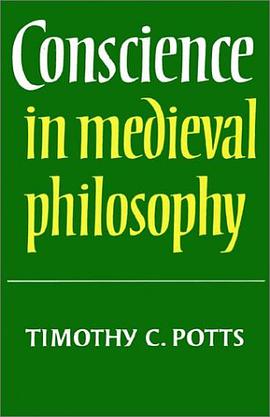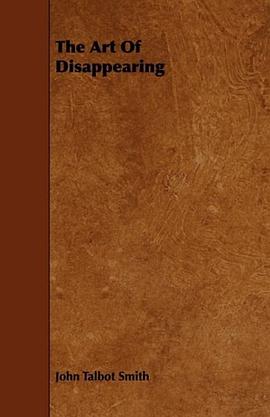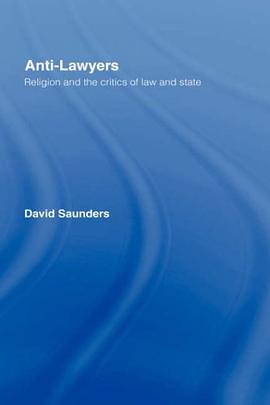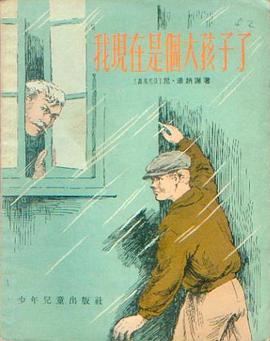

具体描述
For over two and a half millennia human beings have attempted to invent strategies to 'discover' the truth of time, to determine whether time is infinite, whether eternity is the infinite duration of a continuous present, or whether it too rises and falls with the cycles of universal creation and destruction. "Time-Fetishes" recounts the history of a tradition that runs counter to the dominant tradition in Western metaphysics, which has sought to purify eternity of its temporal character. From the pre-Socratics to Ovid and Plotinus, and from Shakespeare to Hegel, Schelling, Nietzsche, Heidegger, and Derrida, "Time-Fetishes" traces the secret tradition of the idea of eternal recurrence and situates it as the grounding thought of Western philosophy and literature.The thinkers in this counter-history of the eternal return lingered long enough on the question of time to learn how to resist separating eternity from time, and how to reflect on the possible identity of time and eternity as a way of resisting all prior metaphysical determinations. Drawing out the implications of Nietzsche's reinvention of the doctrine of return, Lukacher ranges across a broad spectrum of ancient and modern thinkers.Shakespeare's role in this history as the 'poet of time' is particularly significant, for not only does Shakespeare reactivate the pre-Christian arguments of eternal return, he regards them, and all arguments and images concerning the essence of time and Being, from an inimitably ironic perspective. As he makes transitions from literature to philosophy and psychoanalysis, Lukacher displays a theoretical imagination and historical vision that bring to the forefront a host of pre- and post-Christian texts in order to decipher in them an encounter with the thought of eternal recurrence that has been too long buried under layers of rigid metaphysical interpretation.
作者简介
目录信息
读后感
评分
评分
评分
评分
用户评价
这绝对是我近期阅读过最令人耳目一新的一本书了。一开始,我甚至有些担心它会过于学术化或者晦涩难懂,毕竟“时间”这个主题本身就充满了哲学思辨的意味。然而,作者的叙事方式异常地引人入胜,他巧妙地将那些看似宏大的概念,通过一系列生动有趣的故事和细腻入微的观察,变得触手可及。我特别喜欢他对于那些被人们珍视的、与时间有着特殊关联的物品的描写,比如一张泛黄的照片,一枚古老的怀表,或者是一封写在陈旧信纸上的情书。他不仅仅是在描述这些物品本身,更是在揭示它们所承载的情感、记忆和历史。这些物品仿佛成为了时间的载体,连接着过去、现在与未来。我仿佛能看到那些拥有这些物品的人们,他们是如何在时间的洪流中,用这些物件来锚定自己的存在,来对抗遗忘。作者的语言充满了诗意,读起来仿佛在欣赏一幅幅流动的画面,又像是在倾听一段段娓娓道来的往事。这本书让我对“怀旧”有了更深层次的理解,它不再仅仅是一种伤感的情绪,而是一种对生命体验的珍视,一种对过往美好的铭记。它也让我开始留意自己生活中的那些“时间印记”,并尝试去理解它们对我意味着什么。
评分从拿到这本书的那一刻起,我就被它独特的气质所吸引。封面设计上的那种复古感和神秘感,仿佛预示着一场关于时间的奇妙旅程。作者的叙事方式更是出人意料,他并没有用枯燥的理论来阐述,而是将自己对“时间”和“怀旧”的独特见解,融入到一系列引人入胜的故事和细腻的观察之中。我尤其欣赏他对那些被时间“咬噬”过的物品的描绘,例如一张模糊的老照片,一本泛黄的日记,或者是一件充满故事的旧衣服。他不仅仅是在描述这些物品,更是在揭示它们所承载的记忆、情感和历史。这些物品成为了连接过去与现在的桥梁,让我在阅读的过程中,仿佛也经历了一段段跨越时空的旅程。作者的文字充满了诗意,每一句话都经过了精心的打磨,读起来是一种享受。它让我开始重新审视自己对“时间”的看法,不再是匆匆流逝的无情巨兽,而是塑造我们、连接我们的奇妙纽带。它也让我对那些“时间癖好”有了更深的理解,它们并非简单的逃避现实,而是一种对生命意义的追寻。
评分我必须说,这本书的叙事风格是极其独特的。它不像很多探讨时间主题的书籍那样,上来就抛出一堆理论或者宏大的概念,而是更像一位老朋友,用一种轻松而又充满智慧的方式,与你一同漫步在时间的河流中。作者的文字功底毋庸置疑,他能够用最简洁的语言,触及到那些最深刻的情感。我尤其喜欢他对于那些“时间癖好”的分析,比如有人对特定年代的音乐情有独钟,有人对老式电影有着无法割舍的喜爱,又或者有人珍藏着从童年时期就一直陪伴自己的玩偶。他并没有将这些行为简单地定义为“怀旧”,而是深入挖掘了它们背后所蕴含的心理动机和情感价值。这本书让我意识到,我们对时间的依恋,往往是对自身经历的一种确认,是对那些已经逝去但却无比珍贵的时光的一种致敬。它也让我反思,在现代社会越来越追求“新”和“快”的时候,我们是否也在无意中忽略了那些同样宝贵的情感联系。它是一本让我停下来,好好感受时间流逝,并从中汲取力量的书。
评分从拿到这本书的那一刻起,我就被它散发出的独特魅力所吸引。作者以一种极为迷人且充满诗意的方式,深入探讨了“时间”在人类生活中的重要性,以及那些与时间相关的“癖好”所蕴含的深刻意义。他并没有直接给出答案,而是通过一系列引人入胜的故事和细腻的观察,引导读者去探索。我被那些关于“时间胶囊”的描绘所打动,它们以一种充满诗意的方式,展现了人们如何试图留住那些珍贵的时光。作者的语言充满了画面感,我仿佛能够看到那些泛黄的老照片,听到那些被时间封存的旋律。他对于那些“时间癖好”的分析尤其精彩,例如对老式电影的迷恋,对旧式音乐的钟情,或者对那些老物件的珍藏。他并没有简单地将这些行为视为“怀旧”,而是深入挖掘了它们背后所蕴含的心理动机和情感价值。这本书让我开始重新审视自己对“时间”的看法,它不再是匆匆流逝的无情巨兽,而是塑造我们、连接我们的奇妙纽带,是一本能够让你在阅读过程中不断产生共鸣的书籍。
评分我必须承认,当我拿起这本书时,内心是带着一丝好奇和一丝忐忑的。毕竟,在这个快节奏的时代,人们似乎更倾向于向前看,而对“过去”和“怀旧”的情感,有时会被视为一种“时代的落后”。然而,这本书彻底颠覆了我之前的想法。作者用一种极为温和却又极其有力的方式,展现了“时间”在我们生命中的独特地位,以及那些与时间相关的“癖好”并非毫无意义。他通过大量的案例和深入的分析,揭示了人们为何会对某些旧物、某些过时的习惯、甚至某些模糊的记忆产生依恋。这种依恋并非简单的怀旧,而是一种对自身身份的确认,一种对生命意义的追寻。我被那些关于时间旅行、关于记忆修复、关于情感永恒的探讨深深吸引。它让我意识到,我们对时间的感知,以及我们与时间的关系,远比我们想象的要复杂和深刻。书中的每一个篇章都像是一个独立的章节,却又巧妙地串联起一个更宏大的主题。我读到了一些让我捧腹大笑的段落,也读到了一些让我潸然泪下的叙述。总而言之,它是一次关于时间、记忆与人性的深刻探索,值得我们每个人去细细体会。
评分这本书的装帧设计就极具诱惑力,封面上那深邃的色彩和若隐若现的金属质感,仿佛在低语着某种古老的秘密。我拿到它的时候,就有一种迫不及待想要揭开它神秘面纱的冲动。翻开第一页,扑面而来的是一种难以言喻的氛围,一种混合着怀旧、渴望与一丝禁忌的微妙情绪。作者的文字功力可见一斑,每一个词语的选择都经过了精雕细琢,如同在打磨一件稀世珍宝。它并没有直接抛出什么惊世骇俗的观点,而是像一位经验丰富的向导,缓缓地引领着我去探索一个我从未真正触及过的领域。我能感受到字里行间流淌着一种对时间本身的敬畏,以及对那些与时间紧密相连的物件、记忆和情感的深深迷恋。它不是那种让你一口气读完的快餐文学,而更像是一杯需要细细品味的陈酿,每一次啜饮都能品出不同的韵味。我开始反思自己与时间的互动方式,那些被我们遗忘的旧物件,那些承载着我们过去时光的印记,它们在不经意间塑造了我们,成为了我们生命不可或缺的一部分。这本书让我重新审视了“过去”这个概念,它不再是尘封的历史,而是鲜活的存在,是构成我们当下精神世界的重要基石。它唤醒了我内心深处某种沉睡已久的情感,让我对生命中那些细微却深刻的联系有了更深的理解。
评分这绝对是一本能够让你思考很久的书。作者以一种极为独特且充满魅力的视角,探讨了“时间”在人类生活中的重要性,以及那些与时间相关的“癖好”所蕴含的深刻意义。他并没有直接给出答案,而是通过一系列生动的故事和细腻的观察,引导读者去探索。我被那些关于“时间胶囊”、“时间旅行”的隐喻所吸引,它们以一种充满想象力的方式,揭示了人类面对时间流逝的复杂情感。书中的描写极其细腻,我仿佛能够看到那些被岁月打磨过的痕迹,听到那些被时间封存的声音。作者的文字功底深厚,他能够用最简练的语言,触及到最深刻的情感。我尤其喜欢他对那些“时间恋物”的分析,那些被人们珍藏的旧照片,那些陪伴了童年时光的玩偶,它们不仅仅是物品,更是承载着我们生命轨迹的独特印记。这本书让我意识到,对时间的依恋,并非简单的怀旧,而是一种对生命经历的珍视,一种对过去美好的铭记。它也让我开始留意自己生活中的那些“时间印记”,并尝试去理解它们对我意味着什么。
评分初读这本书,我几乎要被作者的细腻观察力所折服。他能够从日常生活中那些最不起眼的细节中,捕捉到与“时间”相关的、最触动人心的瞬间。这本书并不是那种一本正经地讲解时间哲学或者历史的著作,而是更像一位智者,用他温润的笔触,讲述他对时间、记忆以及人类情感之间微妙联系的感悟。我尤其被书中那些关于“时间胶囊”和“时间旅行”的比喻所吸引,它们以一种充满想象力的方式,描绘了人们对时间流逝的无奈,以及对永恒的渴望。作者的文字充满了画面感,我仿佛能看到那些被时间遗忘的角落,那些被人们珍藏的过去。他并没有一味地歌颂怀旧,而是深入探讨了怀旧背后所蕴含的心理机制和情感需求。这本书让我开始重新审视自己对于“旧物”的态度,那些堆积在角落里的老照片、那些泛黄的书籍,它们不再是简单的尘埃,而是承载着我生命轨迹的独特标记。它让我感受到一种来自过去的温暖,一种对生命历程的深深眷恋。
评分当我翻开这本书时,我被它那种独特的氛围所吸引。作者的文字仿佛带着一种魔力,将我带入了一个充满怀旧、渴望与回忆的世界。他并没有直接给出关于“时间”的定义,而是通过一系列生动的故事和细腻的观察,展现了时间在我们生命中所扮演的角色,以及那些与时间相关的“癖好”是如何深刻地影响着我们。我被那些关于“时间胶囊”的描绘所打动,它们以一种充满诗意的方式,展现了人们如何试图留住那些珍贵的时光。作者的语言充满了画面感,我仿佛能够看到那些泛黄的老照片,听到那些被时间封存的旋律。他对于那些“时间癖好”的分析尤其精彩,例如对老式电影的迷恋,对旧式音乐的钟情,或者对那些老物件的珍藏。他并没有简单地将这些行为视为“怀旧”,而是深入挖掘了它们背后所蕴含的心理动机和情感价值。这本书让我开始重新审视自己对“时间”的看法,它不再是匆匆流逝的无情巨兽,而是塑造我们、连接我们的奇妙纽带。
评分这本书的阅读体验极其独特,它不是那种让你一口气读完的通俗读物,而是需要你慢慢咀嚼,细细品味的。作者以一种极为细腻且充满情感的笔触,探讨了“时间”这个宏大而又私人的主题。他没有直接抛出理论,而是通过一系列引人入胜的故事和入木三分的观察,展现了人们对时间的依恋,以及那些与时间相关的“癖好”是如何深刻地塑造着我们的身份认同。我被那些关于“时间旅行”的隐喻所吸引,它们以一种充满想象力的方式,揭示了人类面对时间流逝时的复杂情感。书中的描写极其生动,我仿佛能够看到那些被时间打磨过的痕迹,听到那些被岁月封存的声音。作者的文字功底深厚,他能够用最简练的语言,触及到最深刻的情感。我尤其喜欢他对那些“时间恋物”的分析,那些被人们珍藏的旧照片,那些陪伴了童年时光的玩偶,它们不仅仅是物品,更是承载着我们生命轨迹的独特印记。它是一本能够引发深度思考,并让你重新审视自己与时间关系的杰作。
评分 评分 评分 评分 评分相关图书
本站所有内容均为互联网搜索引擎提供的公开搜索信息,本站不存储任何数据与内容,任何内容与数据均与本站无关,如有需要请联系相关搜索引擎包括但不限于百度,google,bing,sogou 等
© 2026 book.quotespace.org All Rights Reserved. 小美书屋 版权所有




















